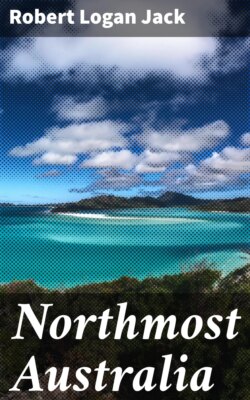Читать книгу Northmost Australia - Robert Logan Jack - Страница 40
На сайте Литреса книга снята с продажи.
SURGEON HAMILTON
Оглавление"Everything being ready on the following day, 1st September, at 12 o'clock [10.30 a.m., Captain], we embarked in our little squadron, each boat having been previously supplied with the latitude and longitude of the island of Timor, 1,100 miles from this place. Our order of sailing was as follows:—
"In the Pinnace. CAPTAIN EDWARDS; Lt. Hayward; Mr. Rickards, Master's Mate; Mr. Packer, Gunner; Mr. Edmonds, Captain's Clerk; Three Prisoners; Sixteen Privates. "In the Red Yawl. Lt. Larkin; MR. GEORGE HAMILTON, SURGEON; Mr. Reynolds, Master's Mate; Mr. Matson, Midshipman; Two Prisoners; Eighteen Privates. "In the Launch. Lt. Corner; Mr. Gregory Bentham, Purser; Mr. Montgomery, Carpenter; Mr. Bowling, Master's Mate; Mr. McKendrick, Midshipman; Two Prisoners; Twenty-four Privates. "In the Blue Yawl. Mr. George Passmore, Master; Mr. Cunningham, Boatswain; Mr. James Innes, Surgeon's Mate; Mr. Fenwick, Midshipman; Three Prisoners; Fifteen Privates. "As soon as we embarked, we laid the oars upon the thwarts, which formed a platform, by which means we stowed two tiers of men. A pair of wooden scales was made in each boat, and a musket-ball weight of bread served to each man. "At meridian, we saw a key, bounded with white craggy rocks. As the principal part of our subsistence was in the launch, it was necessary to keep together, both for our defence and support. We towed each other during the night and at daybreak cast off the tow-line. "At 8 in the morning [2nd September] the red and blue yawls were sent ahead to sound and investigate the coast of New South Wales and to search for a watering place. The country had been described as very destitute of the article of water; but on entering a very fine bay [Orford Bay.—R. L. J.] we found most excellent water rushing from a spring at the very edge of the beach. Here we filled our bellies, a tea kettle and two quart pots. The pinnace and launch had gone too far ahead to observe any signal of our success, and immediately we set sail after them. The coast has a very barren aspect, and from the appearance of the soil and land, looks like a country abounding with minerals. "As we passed round the bay [towards Usher Point, west of Gilmore Bank.—R. L. J.] two CANOES, with three black men in each, put off and paddled very hard to get near us. They stood up in the canoes, waved, and made signs for us to come to them. But as they were perfectly naked, had a very savage aspect, and having heard an indifferent account of the NATIVES of that country, we judged it prudent to avoid them. "In two hours we joined the pinnace and launch, which were lying to for us. At 10 at night, we were alarmed with the dreadful cry of 'Breakers ahead.' We had got amongst a reef of rocks; and in our present state, being worn out and fatigued, it is difficult to say how we got out of them, as the place was fraught with dangers all round...After running along, we came to an inhabited island, from which we promised ourselves a supply of water. [It was evidently daylight, and therefore 3rd September.—R. L. J.] On our approach, the NATIVES flocked down to the beach in crowds...We made signals of distress to them for something to drink which they understood; and on receiving some trifling presents...they brought us a
cag of good water, which we emptied in a minute, and then sent if back to be filled again. They, however, would not bring it the second time, but put it down on the beach and made signs to us to come on shore for it. This we declined, as we observed the women and children running and supplying the men with bows and arrows. In a few minutes, they let fly a shower of arrows amongst the thick of us. Luckily, we had not a man wounded; but an arrow fell between the Captain and Third Lieutenant and went through the boat's thwart and stuck in it. We immediately discharged a volley of muskets at them, which put them to flight. There were, however, none of them killed. We now abandoned all hopes of refreshment here. This island lies contiguous to Mountainous Island [Mount Adolphus Island.—R. L. J.]. It may be observed that the channel through the reef is better than any hitherto known. [1] We ascertained the latitudes with the greatest accuracy and exactness."
The writer goes on to advise the Government to plant pines and coco-nut palms as landmarks.
